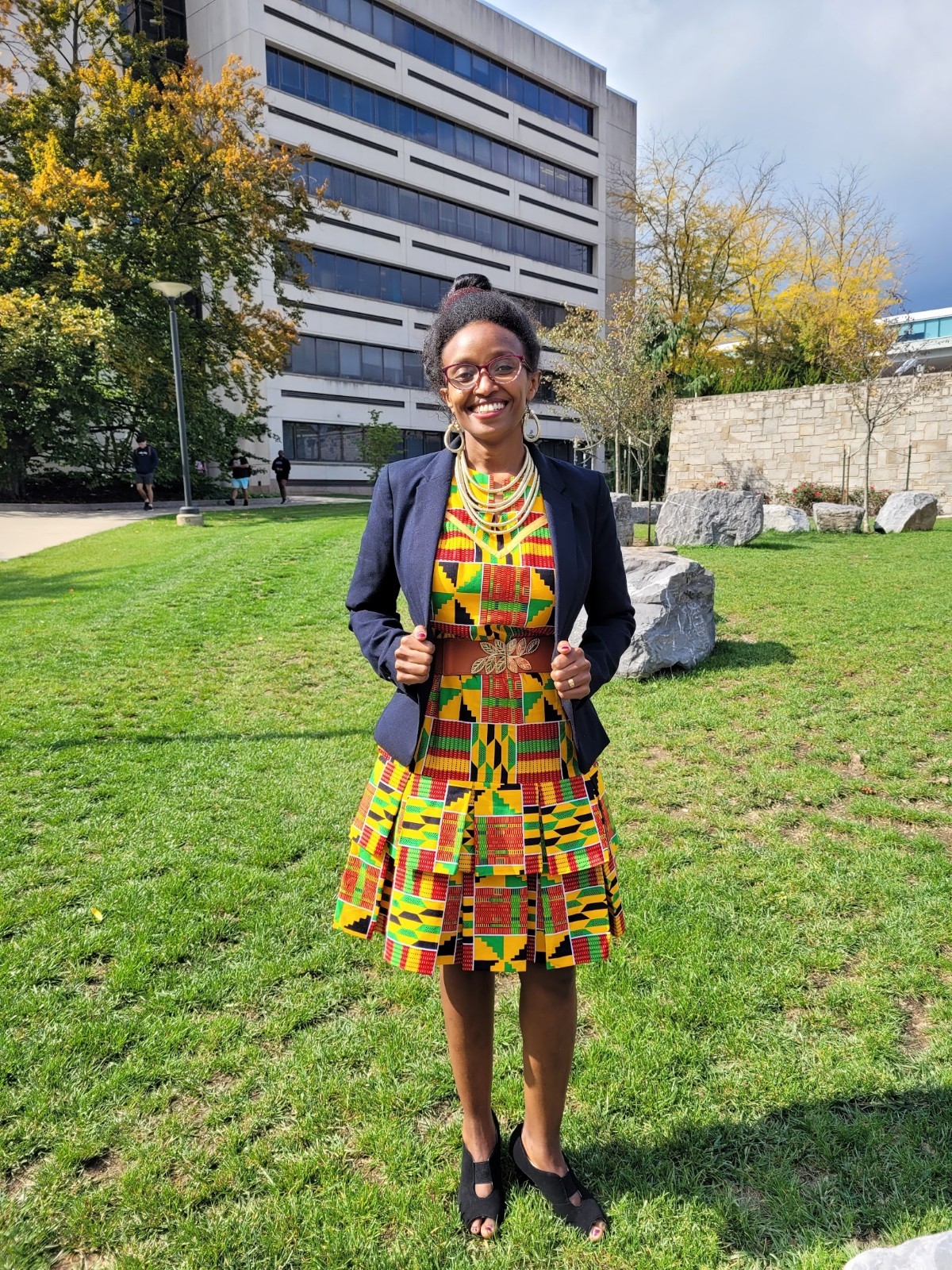News
Grace Malley successfully defends her Dissertation.
 Grace successfully defended her PhD in Geography from Pennsylvania State University, in the United States of America and graduated in December 2022. Her dissertation is titled “Exploring the Intersection between Land Use Dynamics, Habitat Connectivity, and Human-Elephant Interactions in Shared Landscapes.” The dissertation can be accessed through this link:
Grace successfully defended her PhD in Geography from Pennsylvania State University, in the United States of America and graduated in December 2022. Her dissertation is titled “Exploring the Intersection between Land Use Dynamics, Habitat Connectivity, and Human-Elephant Interactions in Shared Landscapes.” The dissertation can be accessed through this link:
https://etda.libraries.psu.edu/catalog/22187gsm11.
Drawing from land change and sustainability science, landscape ecology and social-ecological system theories and methods, and using geospatial technologies, her dissertation explored complexities of human-elephant interactions and options for sustainability. The research used a case study of selected districts in the Morogoro Region, which host parts of important protected areas (i.e., Nyerere National Park, Udzungwa Mountains National Park, Mikumi National Park, and WamiMbiki Game Reserve). The area has been experiencing increased human-elephant conflicts in the form of crop raiding, property damage and human life loss. Subsistence farmers in the study area have been contending with multiple challenges in their agricultural practices ranging from climate change, pests and diseases and financial and farm implement accessibility challenges. Increasing loss of crops and security concerns due to elephants thwarts their livelihood resilience capacity and sustainability.
Dr. Malley’s research has found that: first, human-elephant conflict is affecting the relationship between people and elephants, revealing a shift in the conflict-coexistence continuum from positive to broadly negative. Rather than a static condition, HEC emerges under specific conditions at particular times and places through varying, uneven interactions between rural villagers and elephants. In communities vulnerable to food insecurity, such conflict exacerbates existing problems of poverty, social inequality, and feelings of oppression
Second, LULC change is negatively affecting the landscape, particularly natural forests, wetland, and grasslands. Cropland area more than doubled during this 26-year period, and conversion is likely to occur near areas that are currently under cropland, at the edges of the protected areas and on remnant forests. Deforestation of dense forest mainly occurred on the edges of current protected areas and in patches of remnant forests.
Third, cropland is likely to continue expanding in the next decade if the current rate of change continues, which may lead to increased human-elephant conflicts incidents, aggravating human-elephant relationship.
Finally, expanding human activities in the study area landscape has affected natural elephant migratory corridors to varying extent; with some corridors compromised more than others. Increased proximity between human spaces and elephants’ spaces makes frequent encounters inevitable.
The research provides important insights into the complexities of human-environment interactions that shape shared landscapes. By simulating future LULC change, Dr. Malley’s research provides the opportunity to quantify and anticipate possible LULC changes in the study area, and hence prospects for changing human-elephant relationship in the future. Also, her work shows the usefulness of using multidisciplinary approaches in unravelling the complexities of human-environment interactions. Furthermore, Morogoro being a typical of most tropical social-ecological systems with shared landscapes especially in the African elephant home ranges, Dr. Malley’s research provides critical insights on the dynamics of such landscapes that are necessary for designing contextualized mitigation strategies and enhance coexistence between people and wildlife.
As an academic, researcher and consultant, Dr. Malley brings expertise on social-ecological systems theories and analytical frameworks, Land Use Land Cover mapping and analysis as well as modelling, and theoretical analysis of human-wildlife interactions (e.g., use of Least Cost and Circuit-based theory)
You can reach her through:
Email: gracegmalley@gmail.com or malley.grace@udsm.ac.tz
Office: Office No: 409, IRA Building, 3rd Floor,
University of Dar es salaam
Other News
Tue, 11.Jun.2024 : Congratulations to Dr. Ritha Kalokola on Completing her PhDTue, 11.Jun.2024 : Congratulations to Dr. Olipa Simon on Completing her PhD
Tue, 11.Jun.2024 : CONGRATULATIONS...Dr. Fasco Chengula, for successfully defends his PhD in Environmental Anthropology at the University of Roehampton-London, UK.
Tue, 12.Sep.2023 : Congratulations Prof. Pius Zebhe Yanda
Wed, 16.Dec.2020 : From 5th to 16th October 2020 IRA conducted Introduction to GIS short course with people of Zanzibar Urban Municipal Council

